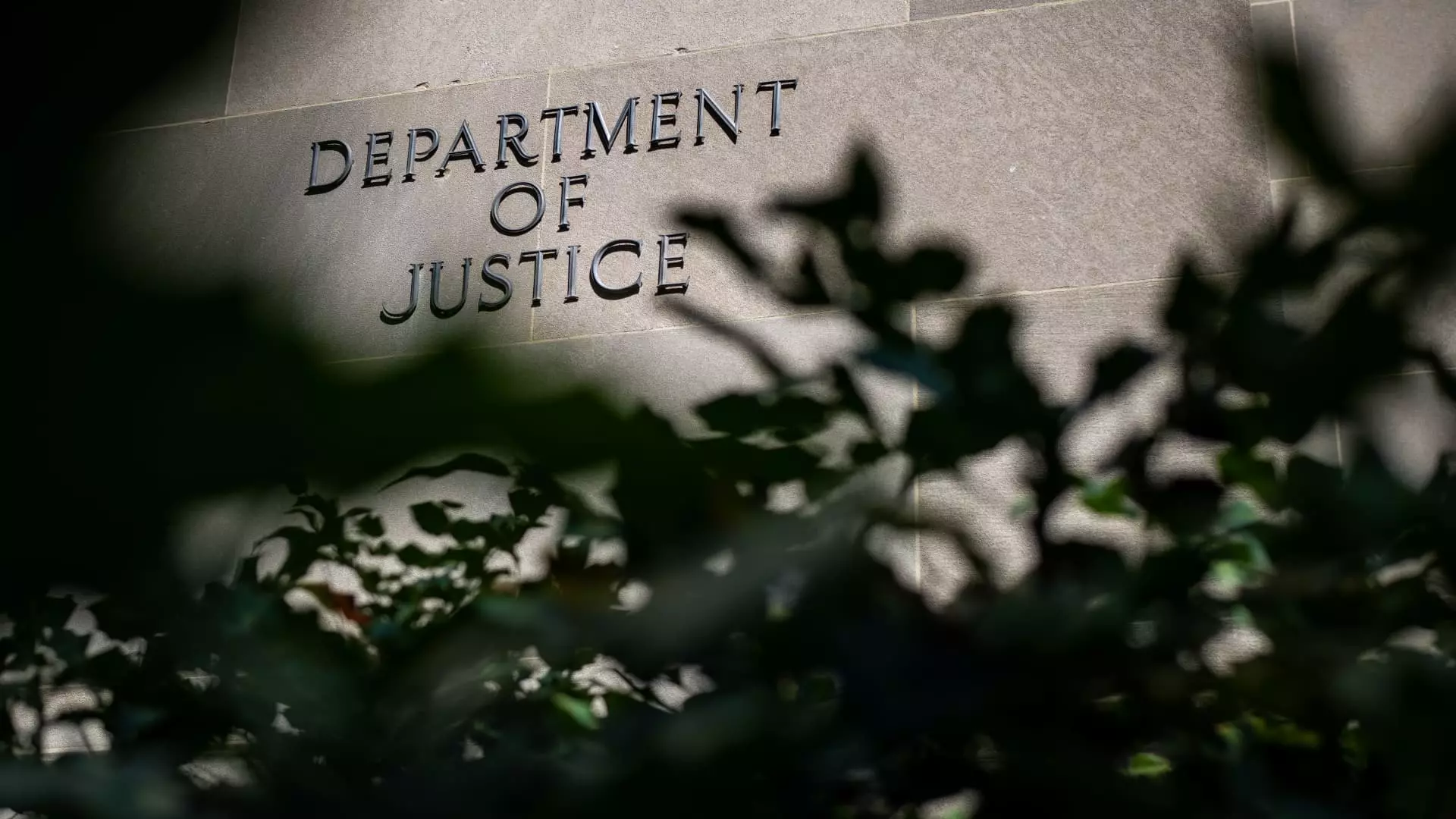In a stunning move that has left many in the financial and regulatory communities bristling with concern, the U.S. Department of Justice (DOJ) has disbanded its National Cryptocurrency Enforcement Team. This abrupt closure represents more than just an organizational shift; it symbolizes a grave transition in the federal government’s approach to combating crimes related to digital assets. With Deputy Attorney General Todd Blanche’s memo, which explicitly outlines a more decentralized enforcement strategy, the expectation of stringent oversight in the cryptocurrency realm has dwindled to a mere whisper.
The DOJ’s new policy reflects a fundamental undermining of previous initiatives aimed at tackling the illicit use of cryptocurrencies. The original intent behind establishing the National Cryptocurrency Enforcement Team in 2022 was to confront rising threats such as terrorism financing, hacking, and organized crime leveraging digital currencies. However, Blanche’s memo suggests a worrying pivot: enforcement will now prioritize only those who directly victimize digital asset investors or use cryptocurrencies in significant criminal enterprises. This paradigm shift overlooks the broader implications of an increasingly unregulated digital asset landscape and risks fostering an environment ripe for exploitation.
The Shockwaves of Deregulation
It’s essential to grasp the consequences of such a sweeping deregulatory approach, especially in a sector known for its lack of transparency. The memo explicitly instructs prosecutors to abandon ongoing investigations that do not meet the newly defined priorities. This includes a clear signal that the DOJ will not pursue enforcement actions against crypto exchanges or services, even if their platforms have been used for unlawful transactions. By essentially exonerating these platforms from accountability, the DOJ is waving a red flag to potential wrongdoers who may view the crypto market as an easy target for fraud and deceit.
Moreover, this decision is emblematic of a broader trend within the Trump administration, which has actively rolled back regulatory frameworks established during the previous administration. Trump’s campaign has deliberately turned a blind eye to the darker side of the digital asset space. With personal stakes in crypto projects, including a yet-to-be-launched decentralized digital bank, it raises uncomfortable questions about conflicts of interest. Is this deregulatory zeal genuinely about fostering innovation, or is it simply self-serving?
A Clash of Ideologies: Regulation vs. Deregulation
The Biden-era strategy for regulating cryptocurrencies made strides toward understanding the emerging financial technology landscape while aiming to protect consumers and maintain market integrity. On the other hand, the current administration’s approach seems to embrace chaos in favor of unchecked entrepreneurial freedom. While some may argue that excessive regulation stifles innovation, it is equally concerning to deregulate to the point where accountability and consumer protection fall by the wayside. The allure of new technology should not compromise our ethical responsibility to mitigate harm.
The decision to halt enforcement accompanying the National Cryptocurrency Enforcement Team is a dangerous precedent that shifts the burden of oversight to disconnected financial regulators with less practical authority or interaction in the digital asset ecosystem. Rather than seizing the opportunity to regulate responsibly, the DOJ’s new stance amplifies the urgency of reformative efforts and legislative action that balance the need for innovation with crucial consumer protections and fraud deterrents.
The Implications for Investors and Market Stability
The implications of this policy on investor confidence and market stability are bleak. As cryptocurrency prices have taken an alarming tumble, resulting in a staggering loss of over $1.2 trillion in market cap since December, the absence of regulatory oversight can only contribute to further volatility. Investors, especially those new to the cryptocurrency space, are likely to feel the brunt of this deregulation as unscrupulous actors increasingly exploit gaps in enforcement.
In a world where digital finance is often viewed as the Wild West, the DOJ’s move is disheartening. While the administration touts a decentralized approach as progressive, it may, in practice, leave too many vulnerable to nefarious actions in a rapidly evolving market. Without proper enforcement mechanisms, consumer trust will erode, leading to skepticism about the future of cryptocurrency as a legitimate and stable investment vehicle.
Ultimately, while deregulation may be presented as a vehicle for financial freedom, the lack of oversight in the cryptocurrency space poses a multifaceted dilemma. The interests of consumers deserve to be safeguarded in this brave new world of finance. As the DOJ shifts its focus, stakeholders across the spectrum must advocate for responsible oversight that curbs abuses without stifling the innovation needed to drive financial progress.

